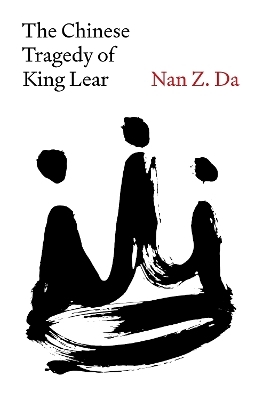
The Chinese Tragedy of King Lear
Seiten
2025
Princeton University Press (Verlag)
978-0-691-26916-0 (ISBN)
Princeton University Press (Verlag)
978-0-691-26916-0 (ISBN)
- Noch nicht erschienen (ca. Juni 2025)
- Versandkostenfrei innerhalb Deutschlands
- Auch auf Rechnung
- Verfügbarkeit in der Filiale vor Ort prüfen
- Artikel merken
A new reading of The Tragedy of King Lear, the most “Chinese” of Shakespeare’s plays, that finds parallels in twentieth-century Chinese history
In Shakespeare’s famous tragedy, King Lear promises to divide his kingdom based on his daughters’ professions of love, but portions it out before hearing all of their answers. Among the play’s themes of filial piety, ingratitude, disharmony, and merit-blind redistribution, Nan Da finds something else: the uncanny similarities between The Tragedy of King Lear and the tragedy of Maoist and post-Maoist China. Blending literary criticism with cultural and personal history, Da—who immigrated from China to the United States as a child in the 1990s—explores Lear both in its own time, addressing the concerns it reflects over the transition from Elizabeth I to James I, and in the twentieth century, through the lens of Chinese history and politics.
Taking seriously the idea that some things can only be told through literary criticism, Da begins in her childhood during Deng Xiaoping’s Opening and then moves back and forth between Lear and China, treating the long twentieth-century history of China as an instantiation of the play, and using this history to explain the play and its design. She brings Lear and all its baggage to bear on the unfinished business of Maoism and other large-scale catastrophes, and, in turn, uses examples from Chinese thought and culture—from Confucianism to the spectacles of Peking Opera—to elucidate the choices Shakespeare made in putting Lear together and the unbearable confusions he left behind.
In Shakespeare’s famous tragedy, King Lear promises to divide his kingdom based on his daughters’ professions of love, but portions it out before hearing all of their answers. Among the play’s themes of filial piety, ingratitude, disharmony, and merit-blind redistribution, Nan Da finds something else: the uncanny similarities between The Tragedy of King Lear and the tragedy of Maoist and post-Maoist China. Blending literary criticism with cultural and personal history, Da—who immigrated from China to the United States as a child in the 1990s—explores Lear both in its own time, addressing the concerns it reflects over the transition from Elizabeth I to James I, and in the twentieth century, through the lens of Chinese history and politics.
Taking seriously the idea that some things can only be told through literary criticism, Da begins in her childhood during Deng Xiaoping’s Opening and then moves back and forth between Lear and China, treating the long twentieth-century history of China as an instantiation of the play, and using this history to explain the play and its design. She brings Lear and all its baggage to bear on the unfinished business of Maoism and other large-scale catastrophes, and, in turn, uses examples from Chinese thought and culture—from Confucianism to the spectacles of Peking Opera—to elucidate the choices Shakespeare made in putting Lear together and the unbearable confusions he left behind.
Nan Z. Da is associate professor of English at Johns Hopkins University and the author of Intransitive Encounters: Sino-US Literatures and the Limits of Exchange.
| Erscheint lt. Verlag | 10.6.2025 |
|---|---|
| Zusatzinfo | 14 b/w illus. |
| Verlagsort | New Jersey |
| Sprache | englisch |
| Maße | 140 x 216 mm |
| Themenwelt | Geisteswissenschaften ► Geschichte ► Regional- / Ländergeschichte |
| Geschichte ► Teilgebiete der Geschichte ► Kulturgeschichte | |
| Geisteswissenschaften ► Sprach- / Literaturwissenschaft ► Anglistik / Amerikanistik | |
| Geisteswissenschaften ► Sprach- / Literaturwissenschaft ► Literaturgeschichte | |
| Geisteswissenschaften ► Sprach- / Literaturwissenschaft ► Literaturwissenschaft | |
| ISBN-10 | 0-691-26916-5 / 0691269165 |
| ISBN-13 | 978-0-691-26916-0 / 9780691269160 |
| Zustand | Neuware |
| Haben Sie eine Frage zum Produkt? |
Mehr entdecken
aus dem Bereich
aus dem Bereich
der stille Abschied vom bäuerlichen Leben in Deutschland
Buch | Hardcover (2023)
C.H.Beck (Verlag)
23,00 €
vom Mittelalter bis zur Gegenwart
Buch | Softcover (2024)
C.H.Beck (Verlag)
12,00 €


